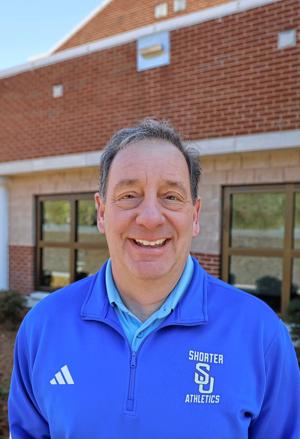
On a recent Saturday morning, the Orchard Baptist Church in Vacaville served as an unexpected venue for transformative legal assistance. A mobile court, organized by Solano County District Attorney Krishna Abrams and local homeless advocates, allowed individuals experiencing homelessness to appear before a judge to clear misdemeanor charges. This initiative aimed at addressing the legal challenges faced by the homeless community, enabling them to move forward without the burden of unresolved legal issues.
Abrams expressed her enthusiasm for the event, stating, “We just wanted to do a good deed in terms of getting these cases off of the docket.” Her sentiment reflected the collaborative spirit of the day, as attendees received letters confirming the dismissal of their charges, a crucial step towards reclaiming their lives. Matthew Olsen, a Deputy District Attorney, noted that participants sought to have warrants recalled, cases dismissed, or charges withdrawn before they could even escalate.
The event emerged from growing concerns about the rising number of arrests within Vacaville’s homeless population. According to Skip Thomson, a former Solano County Supervisor and event organizer, homeless individuals accounted for 96 of 242 arrests in the county jail in July 2024. He remarked, “It’s too costly to keep arresting people,” highlighting a prevailing belief that punitive measures do not effectively address homelessness.
Thomson, alongside his wife Gail Thomson, initiated planning for the mobile court after discussions with Vacaville Chief of Police Chris Polen. They emphasized the need for alternative approaches to homelessness, particularly in light of the 2024 Grants Pass ruling by the United States Supreme Court, which upheld the enforcement of “anti-camping” ordinances. Thomson pointed out that the ruling had resulted in a surge of arrests for behaviors directly associated with homelessness, such as sleeping in public spaces.
For many attendees, the barriers to attending court dates are significant. Thomson explained that unreliable public transit and the challenges of living outdoors often hinder individuals from appearing in court, leading to additional charges for failure to appear. Although the county has initiated some transportation programs, they do not cover initial court appearances, leaving many vulnerable to further legal complications.
The event also featured a resource fair, where participants could access food, beverages, and essential supplies. Sheryl Cutler from the Workforce Development Board of Solano County noted that many justice-involved individuals are eager to work but often require assistance with job application processes. She highlighted the impact of California’s Fair Chance Act, which has improved employment opportunities for those with criminal records by eliminating the requirement for employers to inquire about past arrests.
Abrams expressed gratitude for the community volunteers who supported the event, emphasizing that holding the court at a church created a safe environment for attendees. “People realize once it’s at a church that it’s a safe place and that there will be no arrests,” she stated, underscoring the importance of trust in these outreach efforts. The dismissals achieved during the event can significantly alleviate obstacles to housing, employment, and family connections for those affected.
Despite the positive atmosphere, Gail Thomson pointed out the harsh realities that persist for the homeless in Vacaville. She stated, “If you are homeless, you will be arrested,” reiterating the need for a reevaluation of how law enforcement addresses homelessness. Her perspective reflects a growing consensus that punitive measures alone are insufficient and that comprehensive solutions are necessary to address the root causes of homelessness.
The mobile court initiative represents a step towards fostering a more supportive relationship between the legal system and the homeless population. By allowing individuals to clear their records, the program aims to empower them to pursue stability and reintegration into the community. As the number of unhoused individuals in Vacaville continues to climb—rising from approximately 80 three years ago to over 300 today—advocates like the Thomsons are calling for a more compassionate and effective approach to addressing homelessness.







